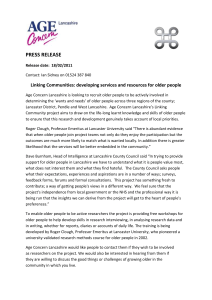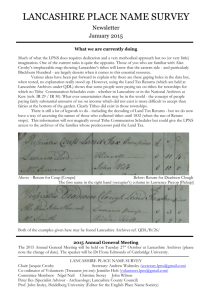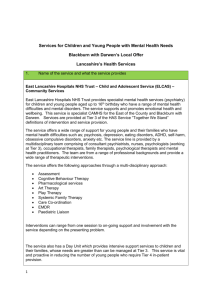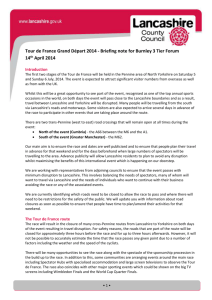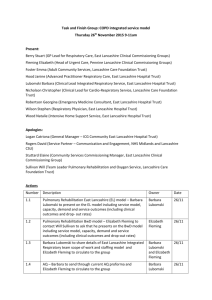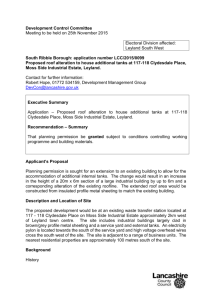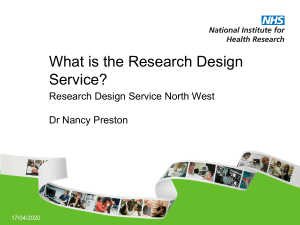Item 6 - Patient Influence on Health Service Delivery
advertisement
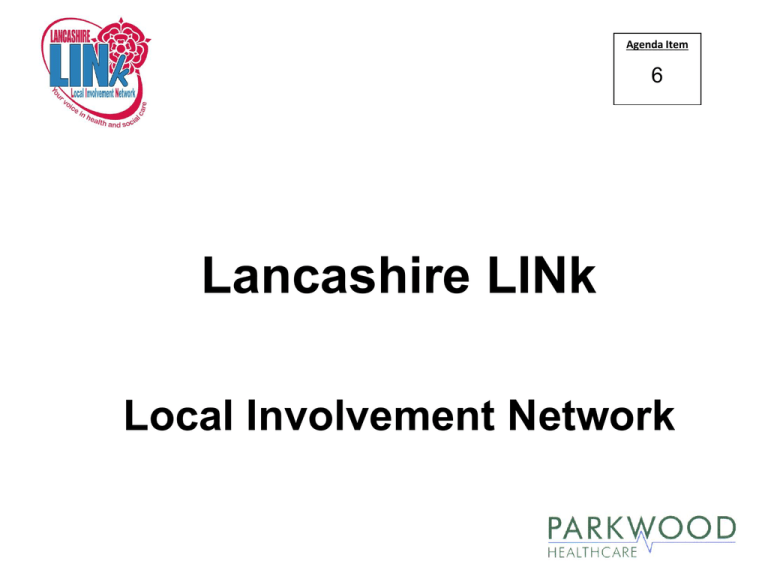
Agenda Item 6 Lancashire LINk Local Involvement Network Lancashire LINk: who are we? • Local Involvement Networks (LINks) were established in 2008 under the Local Government and Public Health Act 2007 • We offer an Independent Voice in relation to health and social care issues • We act as a link between individuals and communities, and commissioners and service providers • We have the power to hold services to account Lancashire LINk: where do we work? • The LINk covers Lancashire (Blackpool and Blackburn with Darwen have their own LINks) working with Health Trusts, Local Authority and District Councils: • Clinical Commissioning Groups • Shadow Health and Wellbeing Board • Primary Care Trusts • Hospital Trusts • Lancashire County Council – Adult Social Care • Care Quality Commission LINk across Lancashire The LINk Board has 12 elected members who represent the three localities Wyre & Fylde Lancaster Morecambe 4 elected members North Locality Support staff Lancaster office Support staff Leyland office Ribble Valley Pendle Hyndburn Burnley Rossendale 4 elected members Preston South Ribble Chorley West Lancs. 4 elected members East Locality Support staffBurnley office Central Locality Lancashire LINk: what do we look like? • Elected Board -12 members, 6 individuals and 6 from groups/organisations • Locality groups: Board Members and volunteers • Members – made up of individuals, representatives from statutory and voluntary sector organisations, community groups, user groups, elected members (councillors) • Bi-monthly newsletter with wide circulation • Membership is free • Anyone can join Lancashire LINk: what are we here for? • LINks are independent of the NHS and social services • We gather and record feedback from the public (both positive and negative) anonymously and confidentially • We report this back to the Commissioners and Managers of health and care services • We also undertake more in-depth engagement and project work Lancashire LINk: projects We have undertaken research and produced reports on: • Domiciliary care • Hospital discharge • Laundry services in care homes • Prisoners and ex-offenders access to mental health services • What young people think about health services • Translation and interpretation in healthcare settings in Lancaster and Morecambe Lancashire LINk: powers The LINk has a number of statutory powers, including the power to: – Enter and view premises, eg hospital wards and care homes – Raise issues with service providers and commissioners and gain a response within a specified timescale – Refer issues to the Health Scrutiny Committee and the Care Quality Commission (CQC) Lancashire LINk: how can we help? • We work closely with Lancashire County Council and have a presence around health and social care locally • We can provide support around engagement, in particular with ‘hard to reach’ and marginalised groups and communities • We can help to organise meetings, events, focus groups etc. to facilitate wider public involvement and add value to patient engagement activities Lancashire LINk: how can we help? • We can help to set up patient reference groups which can assist with patient participation • Through our newsletter, which has a wide circulation, we can encourage involvement and share information about issues which affect local people • We can utilise our extensive network of individuals and organisations to help publicise the new commissioning process and involve local people Thank you for listening Contact details: Preston office: 01772 431195 Burnley office: 01282 714384/5 Lancaster office: 01524 844097 E-mail: lancashirelink@parkwoodhealthcare.co.uk Website: www.lancashirelink.org.uk

